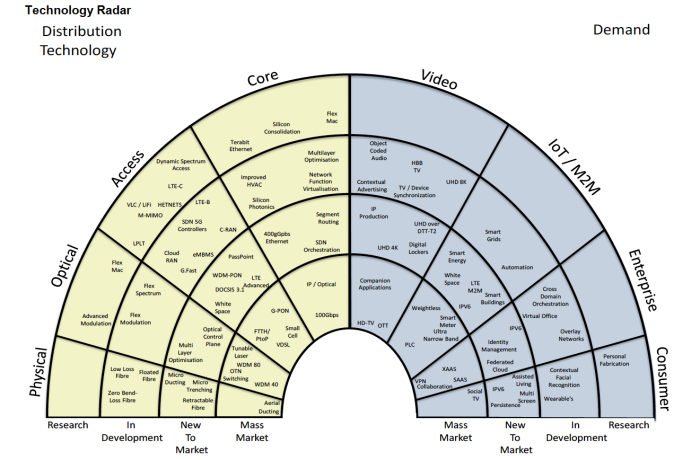Posts Tagged ‘Philip Virgo’
What broadband network is fit for UK future? Have your say
There is less than a month left to respond to the government’s Digital Communications Infrastructure Strategy consultation.
The government seeks guidance on what people think will they require from a communications ecosystem that is fit for their purposes.
In preparing the consultation document it consulted “companies, organisations and individuals from across the communications industry, consumer representatives, the regulator, other government departments and the devolved administrations”.
A glance through Annex A shows that the consultation is, from the outset, framed by an insiders’ view of how the debate should go. “Our assumptions were developed through discussion with stakeholders and draw on a review of published reports and articles. The assumptions include:
- Users will need more bandwidth as data consumption continues to rise;
- Expectations to gain access to services and applications on the move will become the norm;
- Technological advances in telecommunications and broadcasting will continue to be rapid;
- We can expect changes in the communications market, potentially including new players and possibly market consolidation; and
- Resilience and reliability will become increasingly important as aspects of what constitutes a good service, alongside availability and speed.”
Last year the Confederation of British Industries (not credited) said in a study of the UK’s broadband infrastructure that it was “a mistake to hold back the investment until after the next election” and that “households and firms in rural internet ‘not-spots’ need to be connected faster”.
The Federation of Small Businesses (credited) said earlier this year the networks are not “fit for purpose”. “Many urban or semi-urban businesses can experience poor coverage too, and even where broadband is available the range and quality of services often fall short of what businesses require.
“Tailored business packages offering symmetrical upload and download speeds are often prohibitively expensive, while business parks and premises have been overlooked in the roll-out of local fibre networks to residential areas. If the full potential of small business is to be harnessed and the economic benefits of broadband connectivity realised, this must change.”
In 2012 the Forum of Private Business (credited) said, “Energy costs and access to effective telecommunications, including broadband, are the most important infrastructure issues faced by small businesses.”
To be fair, HMRC recently acceded to FPB’s call to delay the compulsory online submission of VAT and tax returns until there is adequate access to high speed broadband across the country.
But that is a small victory.
The well-connected Philip Virgo shows that the scenarios envisaged DCMS are already out of date. By 2020, DCMS’s most extreme view is likely to be commonplace, at least in other countries. Describing the background material as “myopic”, Virgo says, “…publicity for the consultation has been muted and its timing might seem to imply HMG is going through the motions and in not serious. But the politicians are serious and the consequences of a lack of response other than from those contacted will be profound.” (His emphasis.)
Virgo makes the point that the government’s ambition for government services to be “digital by default” is at odds with the delivery mechanism. For him there are two questions: are the on-line services of government usable by the target audience, and how is that usability measured?
As policy issues, those are a lot more useful than most of the 44 questions posed by the DCIS consultation (see Annex C for the summary.) Should government policy really consider technical issues like IPv6? Should it really care how UK network speeds compare to other countries?
A disciple of economist Michael Beesley, Virgo strongly believes that regulators can, or rather should, do little more than control price, quality of service and predatory behaviour. “The recent histories of Ofcom and Ofgem indicate why he was right,” he says.
The Rwandan telecoms regulator RURA has taken this to heart. Last year it set out easily understood and measured Quality of Service standards for mobile and fixed line operators. How the operators do it is up to them. Either they hit it or they don’t. At risk is their licence. That concentrates the mind.
But to return to the consultation. TechQT has put up the entire document plus annexes in an easily commentable online format, thanks to DigressIT. It will collect comments and forward them to DCMS by deadline. And it won’t “disappear” them the way inputs to the Digital Britain report have mysteriously vanished.
Comments close on 1 October. Have your say. It may be your last chance for 10 years.

